Programs
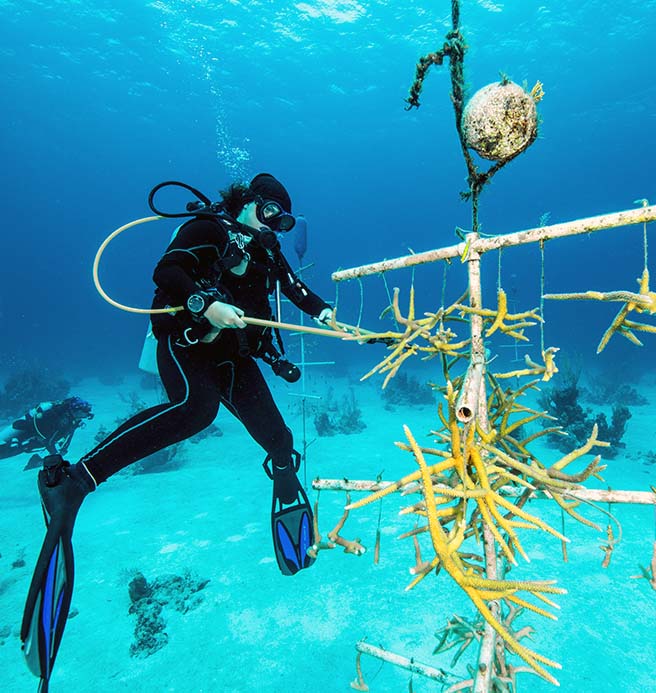
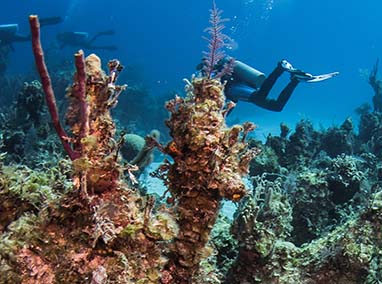
Small Hope Bay Foundation focuses its resources to achieve this mission by protecting the island’s marine ecosystems and educating local residents, particularly children through four programs: establishing of permanent moorings, establishing coral nurseries, creating a Sea Urchin outcropping program and a focus on generational impact through a swim/scuba skills set training program to create Professional Association of Dive Instructors [PADI] certified divers amongst the local population. Please read more!
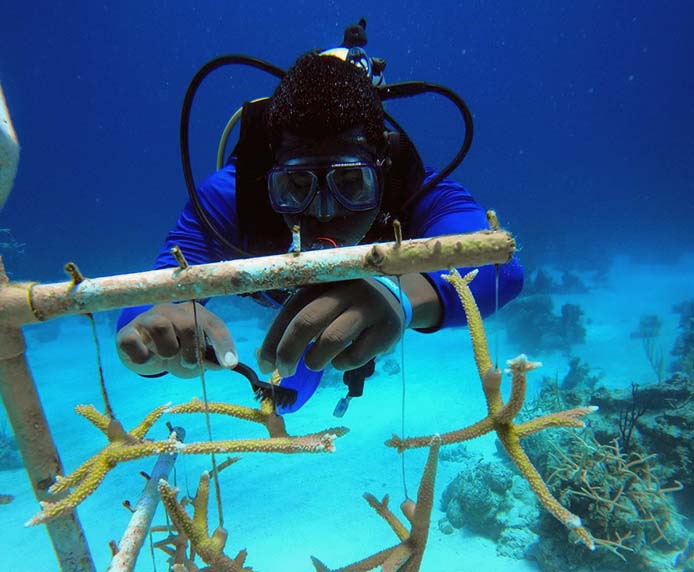
Preserving the Marine Environment
Small Hope Bay Foundation is addressing a number of issues related to coral reef and marine conservation through the creation of permanent moorings and coral nurseries.
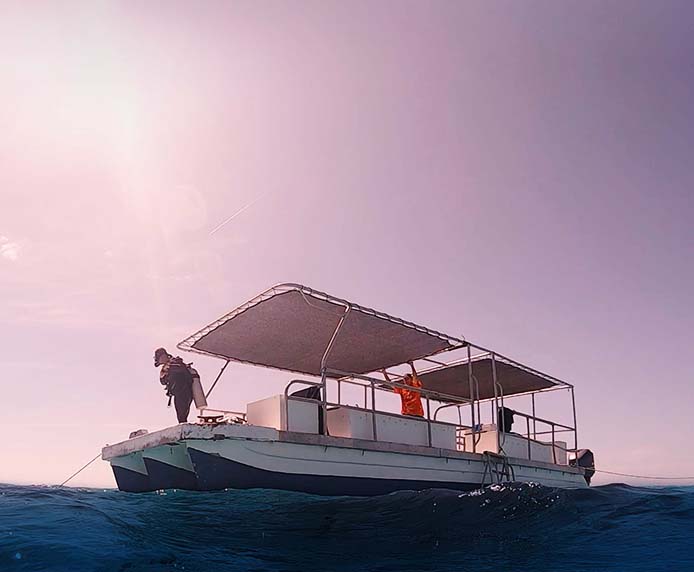
Permanent Moorings
The Foundation is addressing the preservation of the coral reef through the creation of permanent boat moorings in the Andros Reef. Currently, many dive boats simply drop anchor onto the reef, resulting in coral breakage and irreparable damage to the reef. This damage is more than aesthetic. Coral reefs, including the hard corals that make up the barrier reef adjacent to Andros, are fragile ecosystems that are highly susceptible to damage from human contact.
Corals are slow-growing organisms, with most species growing only one inch or less per year. Breakage of a single coral can therefore cause damage that can take years or even decades to repair. As a result, twenty-five coral species are considered threatened or endangered, including at least four species of coral (elkhorn coral, staghorn coral, pillar coral, and rough cactus coral) that are indigenous to Andros.
In addition to being endangered organisms, corals are also among the most important organisms to marine ecosystems. Coral provides a critical habitat for a wide range of marine organisms, many of which are also endangered or threatened. They also provide food for marine organisms and serve as an important source of nitrogen and essential nutrients in the marine food chain. Corals have broader benefits to ecosystems as well; they assist in carbon and nitrogen fixation, nutrient cycling, and protect coastlines from damage caused by waves and tropical storms. The destruction of coral reefs through aimless anchoring has a significant impact on the health of the marine ecosystem.
Creating permanent moorings are expensive as parts and equipment must be shipped into Andros. The moorings are installed by trained personnel using a high-pressure pneumatic hydraulic drill, which cements the pin in place. Trained scuba divers install the proper fastener, rope, and flotation device. The moorings also require occasional maintenance to repair broken ropes or other damage, which can result in additional expense as well.
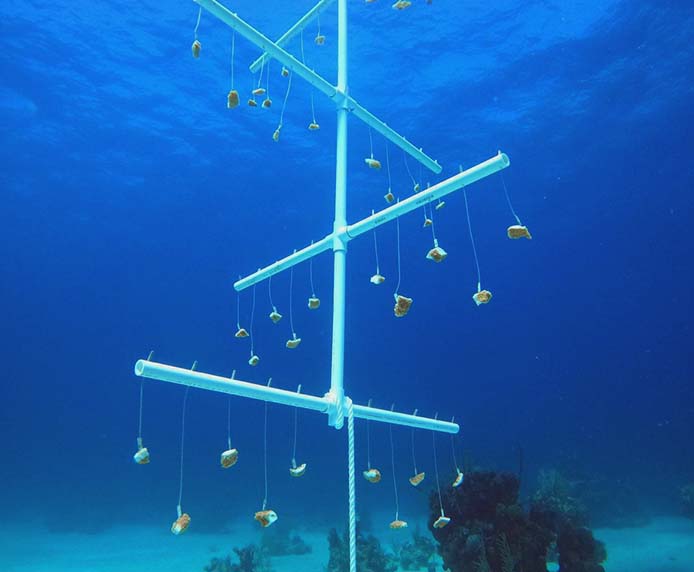
Coral Nurseries
Another environmental initiative that the Small Hope Bay Foundation is conducting is the maintenance and expansion of coral nurseries established at SCUBA diving sites throughout the island. A coral nursery provides an environment for injured coral, often broken by boats, to recuperate and eventually be transplanted back to the seafloor.
In the past, Small Hope Bay Lodge had established a number of coral nursery sites containing trees with multiple staghorn coral fragments that grow to seed and replenish coral die-off areas. The Foundation is now expanding both the number of coral nurseries, as well as the types of indigenous corals that are fostered in these nurseries. Through careful monitoring and care, these coral fragments can begin to grow and are transplanted back to a reef.
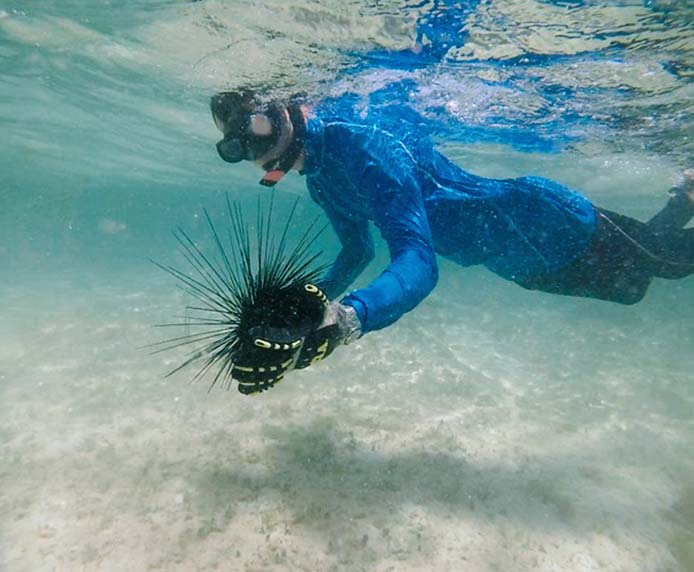
Urchin outcropping
Finally, the third program the Small Hope Bay Foundation intends to establish is urchin outcropping. Long-spined urchins eat algae, which is harmful for the coral, and drastic declines in urchin populations have threatened the health of the reef. Accordingly, the Foundation intends to partner with scientists to research ways to grow urchin populations and transplant urchins from sandy beach areas, where they are more abundant, to reef areas, where they can benefit the ecosystems.
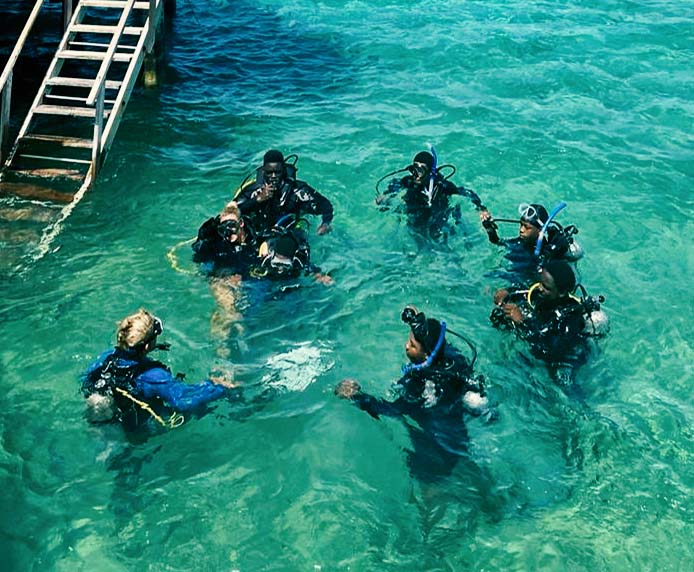
Marine education and skills set program
Before the establishment of the Small Hope Bay Foundation, Small Hope Bay Lodge undertook the challenge of educating local schoolchildren about the marine ecosystem and taught them how to swim and SCUBA dive. While Andros is surrounded by water, most residents do not know how to swim. As a result, many residents cannot take advantage of the demand for well paid dive-related jobs on the island.
The programs were conducted by the Lodge out of its small profit. However as the programs and the demand for services has grown, the lodge is simply unable to meet the demand and support for these operations.
That has now changed with the creation of the Small Hope Bay Foundation. The Foundation is continuing to teach residents how to swim, snorkel, and dive, and about the marine life that exists around the Bahamas.
Presently the Foundation contracts Professional Association of Diving Instructors [PADI] certified dive staff at the Lodge to provide lessons to local students. The Lessons include basic swim lessons as well as PADI Diver certification. In addition to a trained professional staff, Small Hope Bay Lodge has infrastructure and equipment (e.g., dive gear, boats, scuba tank air fill facility) to provide the Foundation to use at an “at cost” basis. This allows the Foundation to extend and leverage resources to advance the mission that would otherwise be prohibitively expensive.
The goal of these programs are two-fold: (1) to prepare disadvantaged youth for a future sustainable livelihood and career development; and (2) to foster and enhance the enjoyment and appreciation of the natural environment. As a result, youth will be empowered with the skills and opportunities to work in the tourism-based economy on Andros, throughout the Bahamas, and beyond. This skill training will help locals qualify for well-paying jobs on Andros Island as dive professionals and guides, of which the majority of positions are currently held by international divers. These programs will focus primarily on children, although some swimming programs may be made open to adults to enhance their enjoyment and appreciation of the natural environment on the island.